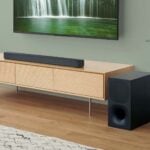John-Miles
Screenwriter
- Joined
- Nov 29, 2001
- Messages
- 1,220
This is my first venture into this side of the forum, I recently bought my first house, and my basement is my new home theater, the basement is unfinished, and for now it will stay mostly unfinished, but since i have an open ceiling I am hoping to get some sound proofing in if i can.
Right now i can hear my stereo fairly well even on the top floor, is there any product that i could put into the ceiling of my basement to dampen most of the sound that passes through?
Right now i can hear my stereo fairly well even on the top floor, is there any product that i could put into the ceiling of my basement to dampen most of the sound that passes through?





